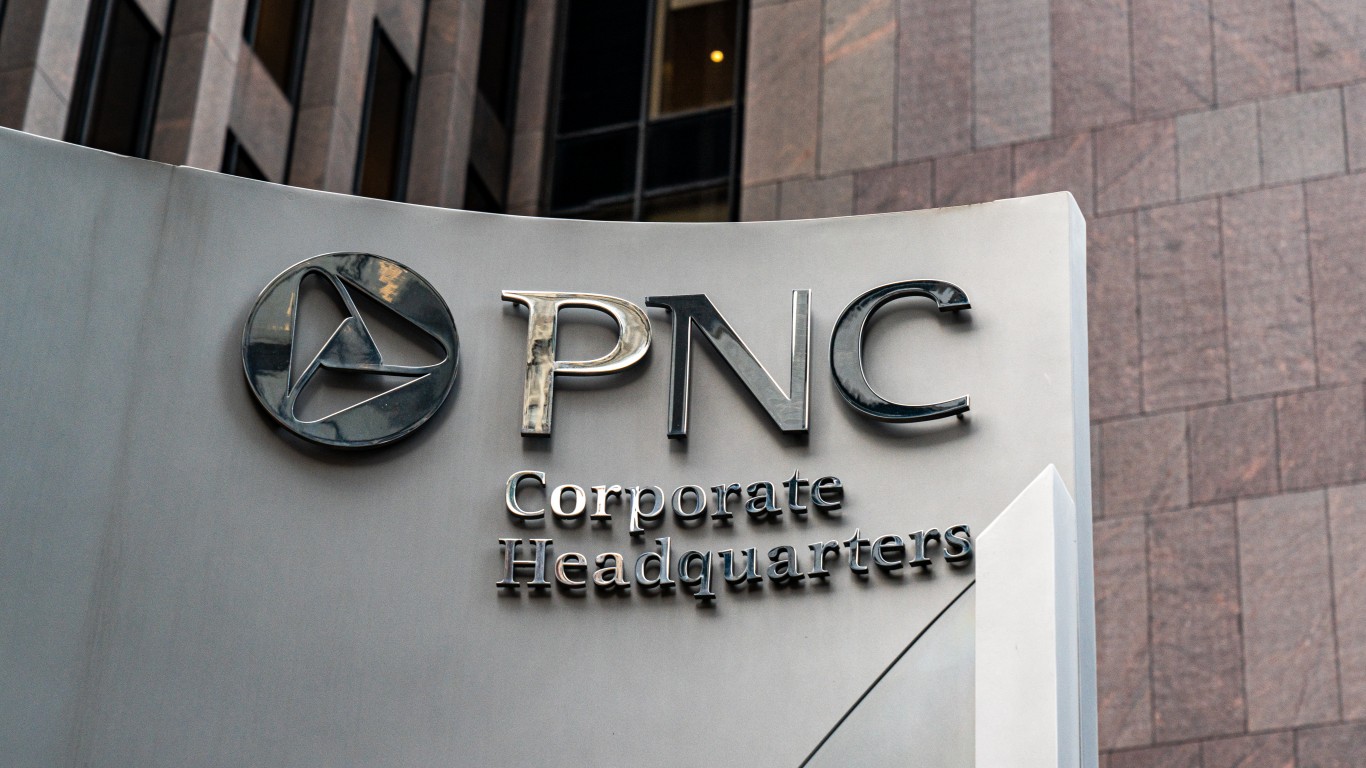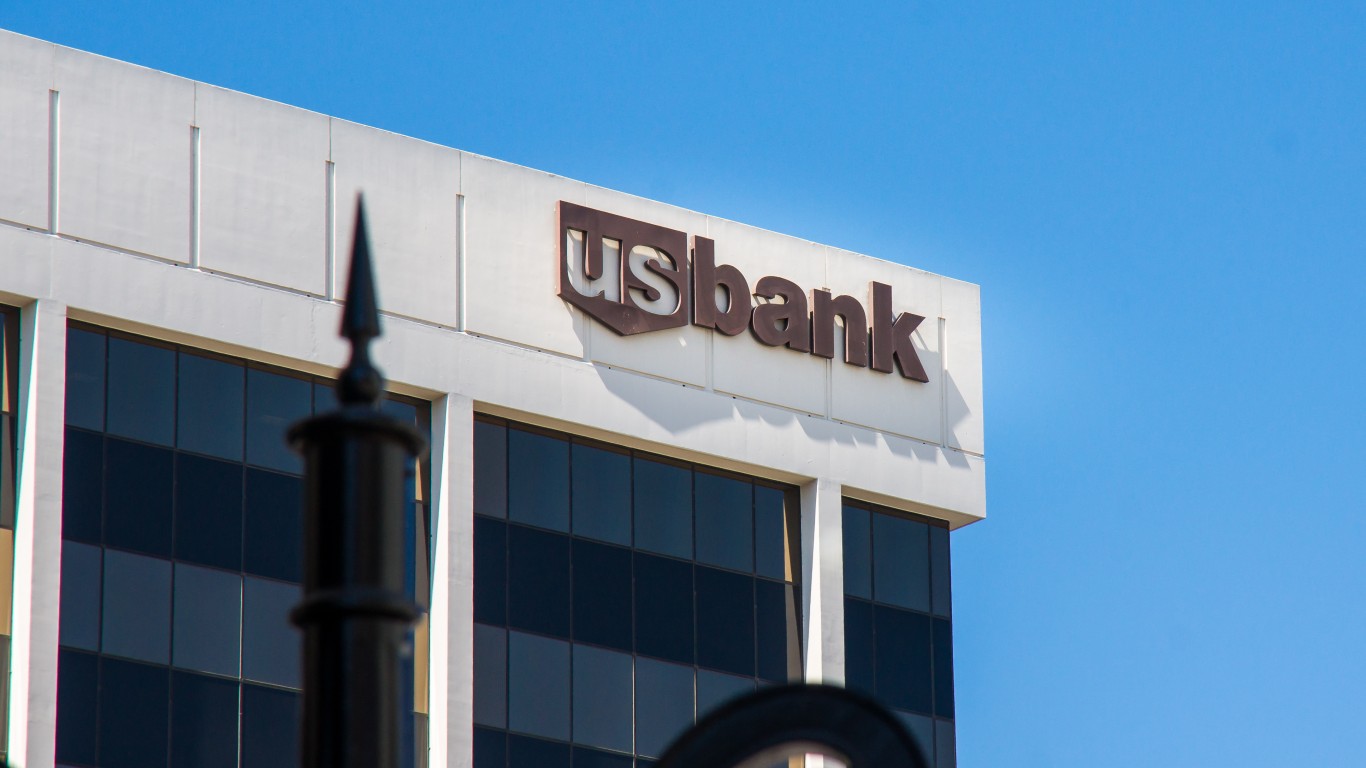Investing
Value Investor Chris Davis Cut All of His Bank Stock Holdings Except These Two

Published:

Famed value investor Chris Davis runs Davis Selected Advisors, a hedge fund with $19.9 billion in assets under management.
While there are many value investors I admire, Davis is among my favorites. He is the grandson of one of the market’s greats, Shelby Davis, who turned a $50,000 grubstake into a $900 million fortune.
The heir to that investing tradition looks for durable, well-managed businesses trading at a discount to their intrinsic value. He then holds onto them for the long term. The average holding period of stocks in Davis Select Advisors is between five and seven years. He will only sell a stock if it achieves excessive valuations, exhibits declining fundamentals, or there is a negative change to the management team or its strategy.
There are over 100 stocks in his portfolio, but a good percentage of them are financial stocks, including Capital One Financial (NYSE:COF), Wells Fargo (NYSE:WFC), and Bank of America (NYSE:BAC). In the second quarter, Davis trimmed his position in every single bank stock except two. For them, he added more shares to his holdings. Let’s see why they might have merited greater love than their peers.

The first bank Davis bought more of was PNC Financial Services Group (NYSE:PNC), a regional bank located primarily in the east and midwest. It has dramatically increased its size over the years through acquisitions, most recently in 2021 when it acquired Banco Bilbao Vizcaya Argentaria’s (NYSE:BBVA) American banking business.
PNC has proved adept at integrating the commercial and retail banking operations of its targets and is a solid regional bank that was never at risk during last year’s financial market’s crisis that led to the collapse of Silicon Valley Bank and Signature Bank, and saw First Republic acquired by JPMorgan Chase (NYSE:JPM).
By acquiring BBVA, however, PNC sets itself apart from many of its regional banking peers. It has a greater national footprint and could see better than expected fee growth for years to come.
Davis owns $79 million dollars worth of PNC stock, or some 510,000 shares after adding an additional 11,000 shares to his holdings. He bought them at an average price of around $158.50 per share, giving him a a 15% gain on the new tranche. As his average buy-in price stands at $113 a share, he has a nice 62% gain going so far.
Since he was adding to his holdings, it appears he doesn’t see PNC Financial as being at an extreme valuation.

The other bank that Davis added to was U.S. Bancorp (NYSE:USB), another regional banking giant. There was some concern about the bank during last year’s crisis and it saw some customers flee with their deposits, but it was short-lived. U.S. Bancorp is in a much better position today.
Part of the worry was its purchase of Mitsubishi UFJ Financial Group‘s (NYSE:MUFG) Union Bank in late 2022. While the acquisition was a bit of poor timing considering the tumult to the industry that followed shortly after, U.S. Bancorp has seen its common equity Tier 1 ratio, or CET1, markedly improve.
The CET1 ratio measures a bank’s capital to its assets with a higher percentage being better. U.S. Bancorp’s ratio dropped from 9.7% to 8.4% after the acquisition, but it has been steadily rebuilding it. At the end of the second quarter, USB’s CET1 ratio stood at 10.3%, an improvement on the 10% it had after the first quarter’s close.
Davis owns 14.2 million shares of U.S. Bancorp stock, valued at $565 million. That makes it one of the billionaire investor’s top 10 holdings. He only added an additional 43,000 shares at around $42 a share. With USB trading around $45 a stub, he has a small gain on the tranche, though his overall buy-in is just under $46 a share so he is essentially breakeven at the moment.
The thought of burdening your family with a financial disaster is most Americans’ nightmare. However, recent studies show that over 100 million Americans still don’t have proper life insurance in the event they pass away.
Life insurance can bring peace of mind – ensuring your loved ones are safeguarded against unforeseen expenses and debts. With premiums often lower than expected and a variety of plans tailored to different life stages and health conditions, securing a policy is more accessible than ever.
A quick, no-obligation quote can provide valuable insight into what’s available and what might best suit your family’s needs. Life insurance is a simple step you can take today to help secure peace of mind for your loved ones tomorrow.
Click here to learn how to get a quote in just a few minutes.
Thank you for reading! Have some feedback for us?
Contact the 24/7 Wall St. editorial team.